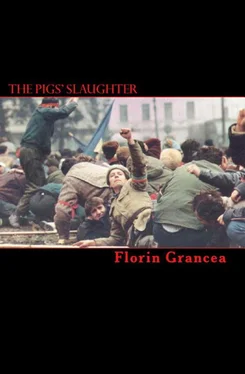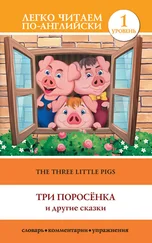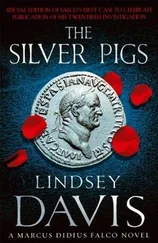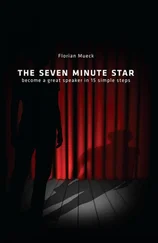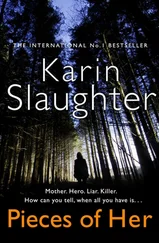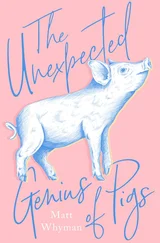But nobody cared. Those defending the airport had orders to kill. It was strange because the airport wasn’t even closed. Taxis were coming and going, people were arriving for work in buses. A bus came into view minutes after those first 22 had already been slaughtered and it, too, entered the kill zone. The machine guns rattled and 8 civilians got killed in an instant, “how was that possible?” Uncle Gheorghe wandered again, questioning not the killing but their instant deaths. “People don’t die like pigs. They need more time”, he used to say to me, and he took his time. On his death bed he took his time, and it was painful for Aunt Parachiva to watch and for Ilie, too, just like it was painful for Uncle Gheorghe to watch those Germans and Russians dying and not being able to comfort them in a language they understood.
Twenty years and two months after that bus entered the kill zone, the survivors and the killers alike claim that the people in it were lucky. Twisted, isn’t it? Of course, they had bad karma that day. They got up on time, they showed up to the bus station on time and despite there being a Revolution, the bus got there and picked them up, on time. Now that’s bad karma. On the other hand, the bus driver wasn’t killed and put the bus into reverse and drove as fast as he could, blood spilling from the closed doors, the cold wind rushing in through the shattered windows, until he and his bus were out of range.
He must have asked himself, “What the hell were the soldiers defending the airport thinking?”. And they must have been thinking the same thing, too, because the surviving soldiers started to hear orders that made sense:
“Drop your weapons”.
Now that was useless. They had dropped their weapons well before that, without having fired them.
“Stand up. Hands up”.
Reluctantly, with fear mixed with hope, they did as they were told.
“Start walking towards the airport”.
Which they did. 61 survivors and that Ionescu, the one uniform that had joined them on their deadly ride started to march, to follow the orders. They got closer. Closer. They could see the faces of their friends’ killers. The killers could see that they were just a bunch of kids, thin and scared in Romanian Army uniforms. Unarmed. Not dangerous at all.
Ra,ta,ta,ta,ta,ta,ta…
The professional soldiers defending the airport opened fire again. And 17 were killed again, to Uncle’s Gheorghe’s disbelief, instantly. 12 others were wounded. They were the ones that confirmed my uncle’s theory, they didn’t die quickly. 11 of them pulled through.
Private Vasile Buta wanted to pull through, too, but his karma was particularly bad. His family name, Buta, is the Japanese for “pig”, but he didn’t know that. Yet. I hadn’t that particular knowledge, either, despite the fact that 20 years after those events I was fluent in Japanese.
Private Buta was wounded in both legs. Paul Bustiuc, formerly Private Paul Bustiuc, was his friend. “They took us prisoners and they forbade us to help the wounded” he recalls in a hushed voice. “He could have lived. He might have lost a leg, or both, but not his life” he speaks to journalists, angry. And I was a journalist in 1996 because my father had died, too, and I needed money to stay in college in Bucharest.
Out of all the people slaughtered that day, private Buta died a pig’s death. He was left to bleed “like a pig” recalls Paul, until his 5 liters of blood drained from his body, which, opened for the autopsy a few days later, looked cleaner than the bodies of people who die with their blood still in them.
At six in the morning, two pots on the fire, my mom was in the kitchen where she would be all day long making lard.
“Before washing, go start the willow smoke under the sausages”, she said, and I read the accusation in her voice, her shame that I was already 14 and I constantly refused to do chores, favoring my reading. The revolution and its broadcast on television were, for my mom, the worst things to happen that year. Not that she didn’t welcome the change, she did, but all that TV broadcasting made it difficult for her to ask for our help in the kitchen.
Traditional fruitcakes had to be made that December 23rd, other cakes and biscuits, too, and everything had to be done before the sun went down. Next day, on Christmas Eve, people would flock to our door and kids would sing carols and she would serve everyone fruitcake and cookies and home made biscuits. The kids would get tea and the adults red wine. And the wine was another problem. My dad had no time to take care of it so I had to go down to the basement and fill 10 or so bottles of wine from the huge 50 liter glass vat. In that vat the grape juice turned into wine in late autumn, and I put the wine-filled bottles in the pantry ready to be emptied by the thirsty carol singers.
Kids in the morning, youngsters in the evening and adults at night. I rushed outside into the cold, holding a newspaper and matchsticks for lighting the fire, under the sausages, then covering it with sawdust, wondering if carol singers would come.
I usually sang carols with my sister at Auntie Anişoara and Uncle Lulu’s house, but not that year, I understood it wasn’t allowed. Their house was across the street from the Town Hall, the place where Avrig’s own Revolution continued, with Mr. Tatu as leader, and my father starting to make himself useful with his radio on which he spoke with the military operators in Sibiu.
As the willow smoke engulfed the meats, I returned to the kitchen only to discover my father packing a sandwich for work and my mom weighting flour. The kitchen scale was set to 3 kilograms and I knew that she was preparing to make the fruitcakes.
“Lucky you, Dad!” I said and he replied:
“Some day this’ll be you!”, and he smiled. He was lucky indeed. Although I didn’t know why, the whole situation was funny for my mom too. She smiled while pointing to a bag full of nuts.
“I need them before noon”. It was decided. No arguments, and as I saw my father leaving for the Town Hall, in his navy blue raincoat, one size bigger than mine, which I got the same time as his, I fixed my breakfast from last night’s leftovers, sat at the table and started to devour it, mouth open, making noises to piss my mom off — my revenge for the bag of nuts.
After breakfast I had to wash the dishes my father and I had used. I needed the sink for the nuts. In the Romania of 1989 nuts for traditional fruitcakes didn’t come from supermarkets in sealed plastic bags, but straight from the trees. We had a nut tree at the end of the garden.
“This tree grows tall and it makes a shade. I shall put it here”, my grandfather had said, “to let our neighbors enjoy its nuts too”, and he planted it so we could get only a quarter of all the nuts it produced, while the two neighboring gardens would get the rest of them. They were good nuts, bigger than the Kiku’s, a neighbouring family.
The nuts rolled into the sink and I turned on the hot water tap. The gas boiler came to life and I could feel the water getting hotter and hotter. Then, I turned the boiler’s dial to the hottest setting and with a wooden spoon I started to mix the nuts. Steam and their characteristic perfume spread throughout the house. I waited and after several minutes when they were well soaked I turned off the water.
My mom handed me an empty plastic bucket which I filled with the nuts. Soaked in hot water they would be easier to crack and clean. This was not an easy job and I wanted to do whatever I could to lessen my pain.
To crack nuts, people from the “civilized world” would use a nutcracker. I knew that there were nutcrackers in the world. I had once seen a ballet by Tchaikovsky with that name. But I had no idea what a nutcracker looked like. Nobody in my town did. All my friends cracked their nuts for their fruitcakes the same way I did: With a hammer and anvil.
Читать дальше
